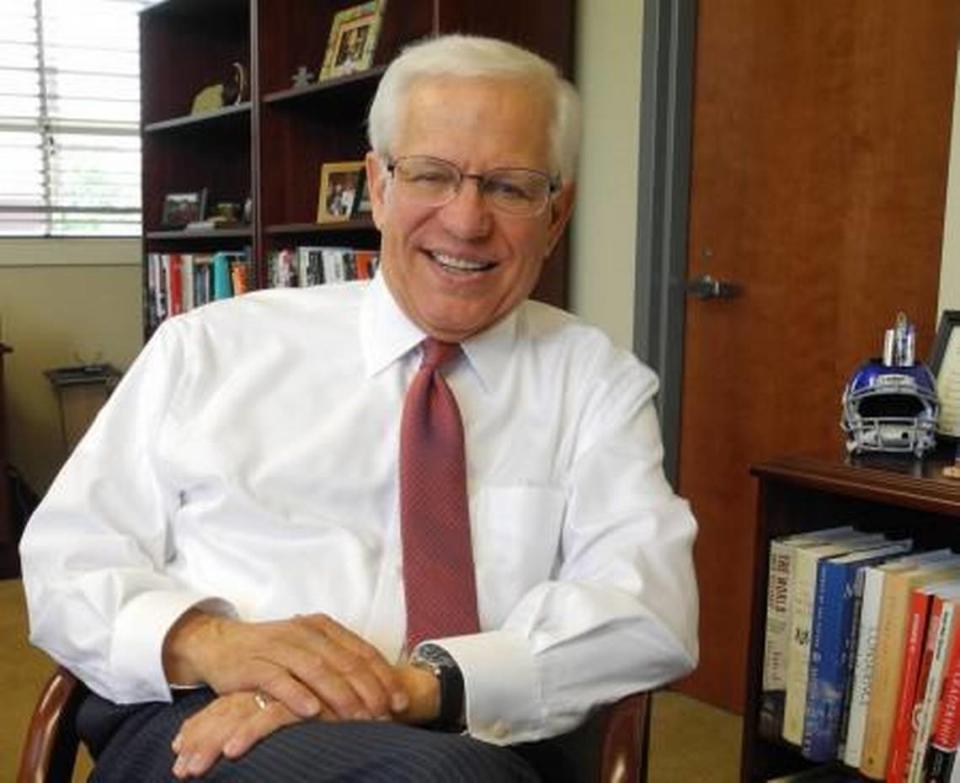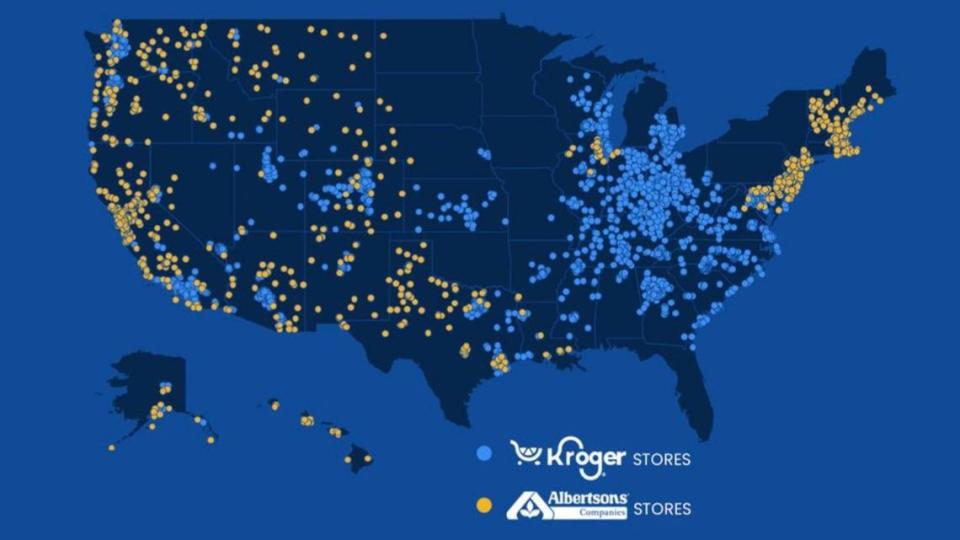Albertsons-Kroger merger good for executives, bad for employees and customers | Opinion
Something’s rotten in the state of Idaho, and it’s not Albertsons’ produce.
It’s the stink of Kroger buying Boise’s hometown store for $25 billion. How could anyone be surprised at who wins and who loses? It sure won’t be the consumers who win. I shopped at Kroger for years in the Midwest, and it’s far afield from Albertsons’ quality. From what I’ve heard from shoppers living near a Kroger store today, nothing has changed. And now the proposed gargantuan can hike prices indiscriminately with competition riding out of town on a rail.

Nor is it the employees who win. They stand to lose the most in this deal.
Supermarket News helps us understand how mergers like this reduce the diversity of grocery store employment options available to workers and place downward pressure on grocery store workers’ wages.
Based on data from The Economic Policy Institute, the merger will permanently reduce the wages of 746,000 grocery store workers in over 50 metropolitan areas with their annual incomes falling by $334 million, at least an estimated $450 loss per worker. That $450 loss may not look like much to wealthy corporate board members, but for many of Albertsons’ employees trying to raise a family on a grocery store wage, it’s a big deal and a bad deal.
If this is such a bad deal for the employees and for consumers who care about the quality they experienced over the years at Albertsons, then why do it? What could possibly be driving this?
I’m reminded of a recent book by two prize-winning journalists, “When McKinsey Comes to Town.” It’s a devastating critique of McKinsey’s corporate consulting work. Too often, McKinsey’s mantra boiled down to a simple formula: reduce the number of employees and hike the pay of the executives. McKinsey may have had nothing to do with the lead-up to this purchase, but the Kroger/Albertsons deal falls in line with the template for how corporate executives feather their own nests and the nests of their board members.
Albertsons’ execs have the executive pay issue figured out. The top executives of the two firms make out like bandits if this merger falls into place.
Boisedev reported on a Cincinnati Enquirer analysis of a Securities and Exchange Commission report filed in April of this year that Albertsons’ top ten executives could take home as much as $146 million if they quit or are laid off as part of the merger deal. And that is often the way it works.
Albertsons CEO Vivek Sankaran could walks away with somewhere between $30 million and $43 million. Here’s a guy who’s only been with the company since 2019, but just long enough to sell it off and make a huge profit. The Albertsons board members are likely not faultless in this deal. It’s not uncommon for boards to bring in CEOs for the express purpose of selling the company with enormous financial consequences for the board and the execs.
As of 2021, CEO compensation, on average, was about 398.8 times the annual average salary of production and nonsupervisory workers. Albertsons’ Sankaran makes that ratio look modest, as his pay last year was 506 times the median employee’s pay at the company. His pay nearly doubled from 2021 to 2022 to $16.1 million, an increase of 86% from the year before.

It’s not as though this is the first time Boise’s flagship company has been sold with the CEO walking off with millions. A few years ago, a guy from Jack Welch’s General Electric, Larry Johnston, sauntered into town to take over Albertsons and guess what? It was sold not long thereafter and Johnston stuffed his pockets with his hefty buyout.
We hear a great deal about inequality in America these days, but seldom do we see it played out as close to home as the Kroger/Albertsons merger. Corporate boards and execs seem to give little thought to even a modicum of corporate social responsibility.
I can’t count the number of times I’ve been to events, performances or venues where Boise corporations are touted for their generosity in supporting the not-for-profit organizations hosting the event. The day may come when you attend one of these events and hear Albertsons acknowledged for its philanthropic ways. Perhaps it will be at Albertsons Stadium where the Broncos play and Albertsons paid to have its name on the stadium.
That’s when you may want to spend a few moments thinking about the employees at Albertsons who will suffer as employee wages decline with one company holding life and death control over workers, their employment options, and their wages. You can also give some thought as to how much we will lose in competitive pricing of grocery items if Albertsons, Kroger and Fred Meyer are all under the same ownership. What’s to guarantee quality and value won’t slip with such concentrated ownership and management?
This time, Boise will also lose the iconic Albertsons brand name. Kroger’s CEO Rodney McMullen and CFO Garry Millerchip who would lead the new company say there will be a new name for the combined company, and it won’t be Albertsons or Kroger. Nor have they said where the company will be based and how that may impact Albertsons employees. These guys are opining on Albertsons’ future from Cincinnati which makes this deal look like the 2006 Supervalu purchase which jettisoned Boise employees and sent others to Minneapolis.
Joe Albertson must be spinning in his grave as the store he founded and branded once again loses its focus on consumers, employees and the entire Boise community. Kroger’s corporate raiders ride into town to buy yet another of our grocery chains, welcomed by Albertsons execs who can’t resist the windfall buyouts. As usual, consumers and employees suffer the consequences.
See you at WinCo. Now there’s a Western grocer that has not forgotten its roots.
Bob Kustra served as president of Boise State University from 2003 to 2018. He is host of Readers Corner on Boise State Public Radio and he writes a biweekly column for the Idaho Statesman. He served two terms as Illinois lieutenant governor and 10 years as a state legislator.

